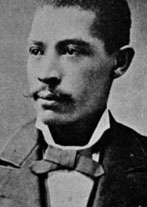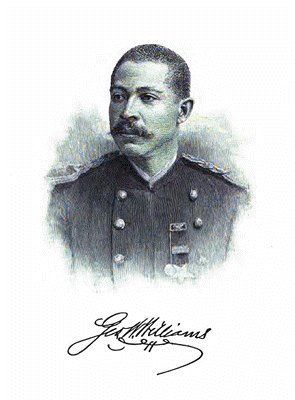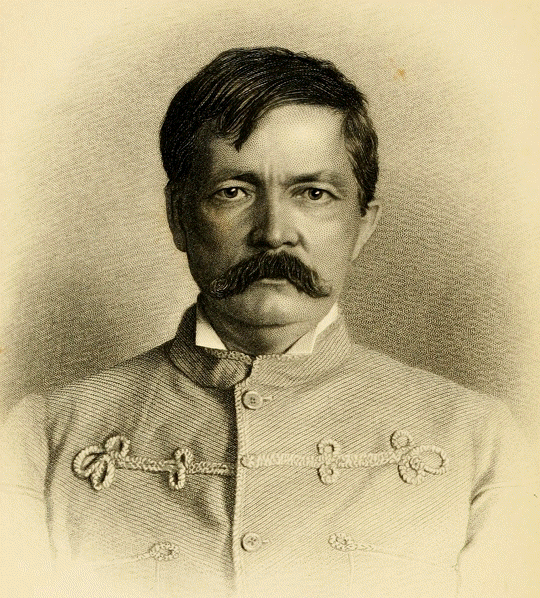(Born Oct. 16, 1849 in generation #62, Bedford Springs, Pa., U.S. (Died Aug. 2, 1891, Blackpool, England) 
The very most revealing research about Williams was published by Dr. John Hope Franklin many years ago --- about this gifted child who soared like an eagle for "the least of us." The Jesse Jackson of his generation (1830-1859) Williams was a dynamic historian, clergyman, politician, lawyer, lecturer, soldier who was the first person to write an objective and scientifically researched history of black people in the United States. The son of a laborer, Williams enlisted at age 14 in the Union Army and fought in the Civil War to help liberate African-Americans, was wounded & awarded for outstanding performance of duty. After the American Civil War he was part of a contingent of well-trained and experienced Black soldiers sent by the United States Government to help Mexicans rid themselves of their French rulers, and eventually served as Inspector General of the Mexican Army.  Upon leaving the army in 1868, he underwent training as a minister at the Newton Theological Institution and was ordained in 1874. In the following years he served as pastor of several churches, edited and published several short-lived journals, studied law and practiced in the law offices of President Grant's father, and served in the Ohio House of Representatives from 1879 to 1881. Upon leaving the army in 1868, he underwent training as a minister at the Newton Theological Institution and was ordained in 1874. In the following years he served as pastor of several churches, edited and published several short-lived journals, studied law and practiced in the law offices of President Grant's father, and served in the Ohio House of Representatives from 1879 to 1881.
By this time he had become interested in the study of history, and after doing copious research he had his History of the Negro Race in America from 1619 to 1880 published in 1882. There had been several previous works written on this subject by black historians, but Williams' work was the first relatively objective account that strove for historical accuracy rather than functioning as a work of black apologetics or propaganda. Williams' research for his next work, A History of the Negro Troops in the War of the Rebellion (1888), involved the gathering of oral histories from black Civil War veterans and the culling of newspaper accounts, both techniques which subsequently became basic resources in American historiography.
During the 1880s Williams worked on his books, practiced law, and gave lectures. In 1889 he became interested in the prospect of employing black Americans in the Congo Free State under the auspices of the Belgian king Leopold. But a visit to the Congo in 1890 shocked him into an appreciation of Leopold's brutal exploitation of the people of the Congo, and their mineral wealth, especially copper, diamonds, gold and timber.  Williams spent the short remainder of his life publicizing the outrages that were being perpetrated there by former slave trader and Confederate soldier Henry Stanley, the racist Rothschild bankers, and other backers of Leopold. He died unexpectedly in London while doing research at the London records office to help expose the dishonesty and fraud engaged by imperialists in Africa. He may have been murdered. Williams spent the short remainder of his life publicizing the outrages that were being perpetrated there by former slave trader and Confederate soldier Henry Stanley, the racist Rothschild bankers, and other backers of Leopold. He died unexpectedly in London while doing research at the London records office to help expose the dishonesty and fraud engaged by imperialists in Africa. He may have been murdered.
Whatever the case may have been, Williams is the type of African heritage activist, in mind and body, not likely to be remembered in a Hollywood script because most writers and directors lack knowledge of him; and those few who do are skeptical that such a man could have emerged from among "the least of us."
|